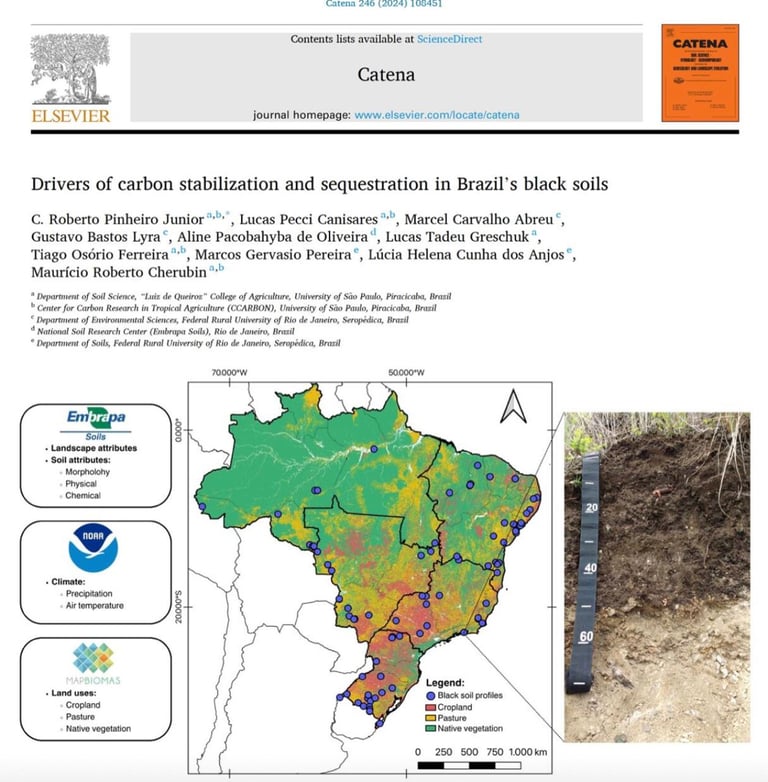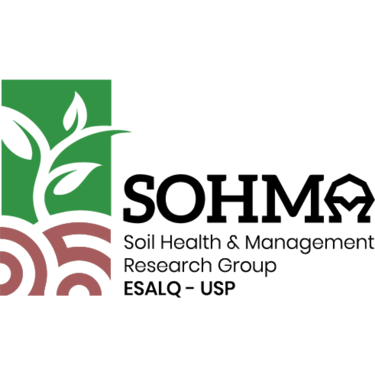Paper launch on Carbon Stability and Sequestration in Black Soils
Black soils (i.e., Chernosols) are soils characterized by moderate to high accumulation of organic matter and high natural fertility, being particularly important in mitigating climate change and food security, but are considered by the Food and Agriculture Organization of the United Nations (FAO) as soils highly vulnerable to degradation. In view of this, the study “Drivers of carbon stabilization and sequestration in Brazil’s black soils” was published in the Catena journal, conducted by the team from CCARBON/USP - Center for Carbon Research in Tropical Agriculture and led by SOHMA postdoctoral fellow Carlos Roberto Pinheiro Junior.
The main objective of this study was to evaluate how land use (crops, pasture, and native vegetation) and climate (semi-arid to superhumid) affect the dynamics of organic C in black soils in Brazil. In short, the study concluded that:
- Land use and climate type did not affect the dynamics of organic C in black soils in Brazil;
- The low C/N ratio and the strong correlation between exchangeable calcium levels, cation exchange capacity, and clay and organic C levels suggest that organomineral interactions - which are stronger in soils with high activity clays - promote greater stabilization of soil C and its long-term persistence and, therefore, less sensitivity to variations in climate and land use.
- Considering the total area of approximately 3.7 million hectares and the average C stock value of 93.2 Mg/ha, the total organic C stored in black soils in Brazil is on the order of 0.35 Gt, and the potential for stabilizing the carbon stock is 0.25 Gt.




